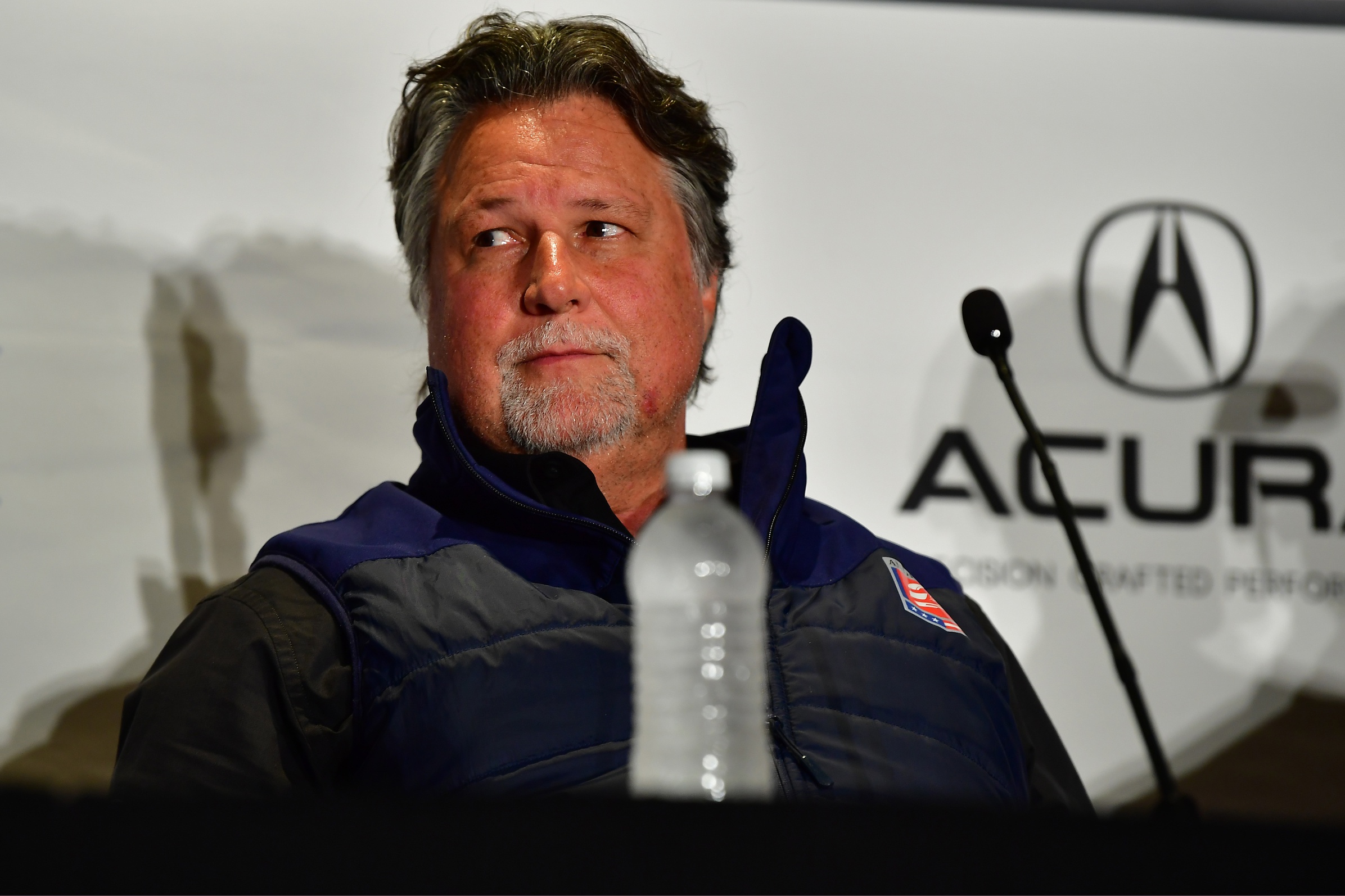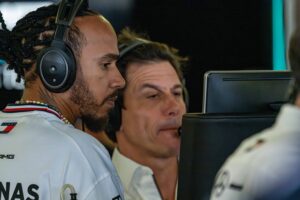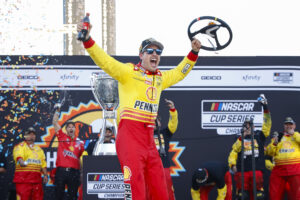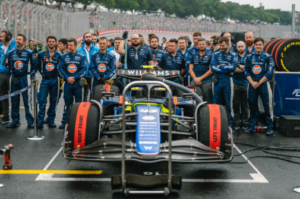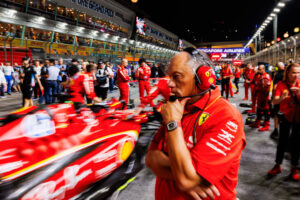Part 3’s what-ifs span both sides of the Atlantic. We focus on three Formula 1 drivers whose talents were wasted by wholly contrasting circumstances.
Making it into Formula 1 requires talent, and more often than not, money. But being in the right place at the right time is also crucial. Whilst the what-ifs in question in this edition all made it, their talents were, for different reasons, never maximized.
1 – Johnny Herbert
After capturing the attention of Formula 1 teams with superb performances in British Formula 3 and Formula 3000, Johnny Herbert was tipped to be the best British driver since Jim Clark. However, on August 21st, 1988, fate would stand in his way.
On the first lap at Brands Hatch, Herbert’s car was pitched into a spin, sending him into the barrier, ripping the front off. It would then spin into the barrier on the other side, causing serious feet and leg injuries. Amputation seemed likely, but surgeons saved his feet, but Herbert was left with mobility issues. Both his day-to-day life and his driving style would be affected.
Despite a huge setback, Herbert made his Grand Prix debut just seven months later with Benetton in Brazil. Though still needing crutches, he miraculously finished 4th, just 1.1 seconds off 3rd place. In-between seats at Tyrrell and Lotus, Herbert would return to Benetton in late 1994, taking an emotional first win at Silverstone, followed by another at Monza. He later would show flashes of brilliance at Sauber and Stewart GP, giving the latter its solitary win at the Nurburgring in 1999.
What would have happened had Herbert not crashed that day?
Despite interest from Frank Williams, Benetton – run by friend and mentor, Peter Collins – was always a likely destination. Herbert’s performances would have surely not been affected (he would be fired mid-89), and whilst not the fastest car, Benetton would win races in both 89 and 1990. Herbert may well have performed well enough to secure a drive for a top team.
Such determination to continue racing after huge physical and mental setbacks shows Herbert’s strength of character, as well as the talent he was still able to exude. But had he walked away from his horrific crash, Herbert may well have fulfilled the promise that was placed upon him. But alas, the tale of Herbert’s career will surely continue to be one of the biggest what-ifs for British F1 fans.
2 – Derek Warwick
Circumstances were seldom kind to Derek Warwick. The Hampshire-born man drove for top teams, but always at the wrong time.
Warwick replaced Alain Prost at Renault just as the French team’s powers were not as strong as they once were. In 1984, an offer to drive for Williams came, but Warwick declined in the hope Renault would return to winning ways again. They would not, and Nigel Mansell instead became a Grand Prix winner and champion with Williams.
Fortunately for Warwick another offer just as mouthwatering would come just a year later in the shape of Team Lotus. With Elio de Angelis’ seat vacant, Warwick looked set to partner Ayrton Senna. He would have accepted, but Senna vetoed the move. ‘When Senna heard about it, he blocked me,’ Warwick has since said. ‘He thought of me as a front-runner, and he used all his considerable power with JPS [Lotus’ sponsor] and the other sponsors to get rid of me.’ Senna apparently claimed that he did not feel the team were capable of handling two talented drivers, so Peter Warr rescinded the offer.
If Warwick had made either move, what would have become of his career?
Williams became the dominant force in 1986 and 87, and Warwick’s talents would have surely helped him to wins and perhaps titles in such a car. Lotus and Senna would run Piquet, Mansell, and eventual champion Prost close in ’86, and Warwick may well have taken victories in the same machinery.
It is worth noting, that, like Herbert, Warwick would achieve greatness in other realms of motorsport. Both men would win the Le Mans 24 Hours, Herbert for Mazda in 1991, and Warwick a year later for Peugeot.
When I interviewed Derek for LWOS a few months ago, he showed gratitude for his career. And the cliche of being one of the greatest Formula 1 drivers to never win a Grand Prix has not left him bitter.
3 – Michael Andretti
Son of 1978 World Champion Mario, Michael Andretti, IndyCar champion of 1991, secured a drive with McLaren for 1993. Partnering Senna, Andretti would struggle in the opening races, failing to complete a solitary lap in the first four rounds. Despite being lapped by Senna, he would finish 5th in Spain and 6th in France. In his final appearance for the team in Italy, he would finish 3rd, but the damage was done and was replaced by Mika Hakkinen.
Would a move to Europe or team support aided Andretti?
Many have speculated as to why such a talented driver would ultimately struggle in F1. Andretti’s son Marco alleged that his father’s cars were often purposely compromised as the team wanted Hakkinen, who was signed to replace Senna, who made several inclinations to leave the team. Others have noted that Andretti never committed to moving to Europe, instead opting to commute to races and testing from America. Andretti was also alien to almost all the circuits on the calendar, rendering him at a disadvantage. This was also hampered even further by the introduction of lap limits in practice sessions in 1993.
Andretti would ultimately return to racing in the States, never driving in F1 again. A missed opportunity perhaps, but Andretti may soon return to F1, this time as a team boss. Now the owner of Andretti Global, partaking in motorsports including IndyCars and Formula E, applications to enter “Andretti Global” into F1 have been submitted. Despite failed attempts to buy Haas as well as opposition from other teams towards a standalone constructor entry, can the famous name become successful again in Formula 1?
In part 4 of the greatest what-ifs we look at the career of Poland’s greatest F1 driver as well as a missed opportunity for Aussie Grit
Previous editions of F1’s Biggest ‘What-Ifs’ can be found here


